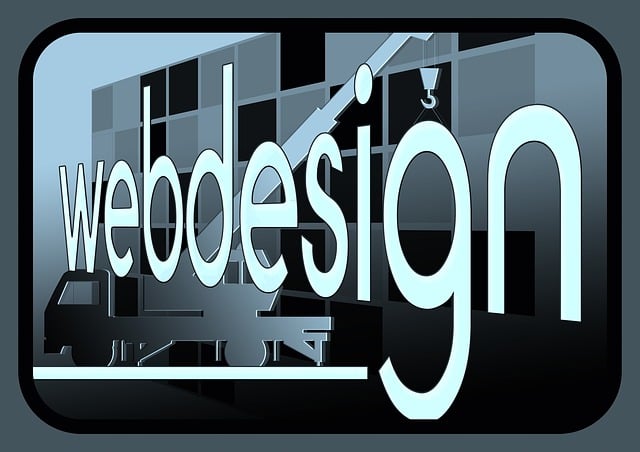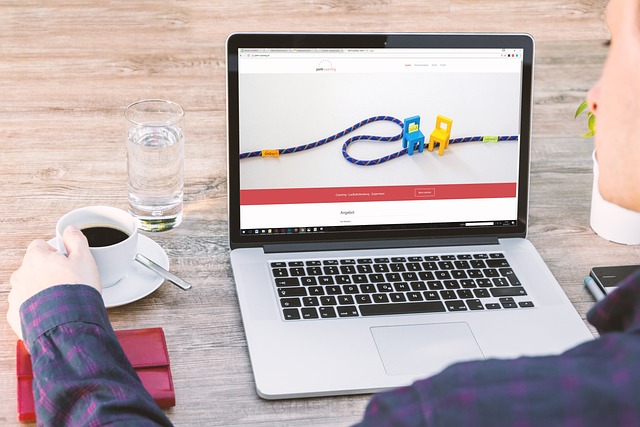In a competitive startup landscape, full-service web design offers a comprehensive solution for online success. This approach provides startups with a single source for all their digital needs, including branding, UX, development, and marketing expertise. By seamlessly integrating these elements, it creates powerful online platforms that reflect the brand's essence and engage target audiences. Effective web design focuses on aesthetics, functionality, and user experience (UX), incorporating responsive design, interactive features, and content strategies. The selection of appropriate technologies and frameworks ensures robust performance and scalability. Full-service design companies excel in UX optimization, prioritizing user needs and behaviors. Additionally, they employ SEO strategies to enhance online visibility and attract organic traffic, driving business growth through conversions and engagement.
In today’s digital landscape, a robust online presence is non-negotiable for startups aiming to thrive. This article guides you through the intricacies of crafting a powerful website that propels your startup forward. We explore a comprehensive full-service web design approach tailored to address unique startup needs. From understanding essential components and choosing the right tech stack, to UX optimization, responsiveness, integrated features, and marketing strategies, this guide equips you with insights for creating an impactful online platform.
Understanding Startup Needs: A Full-Service Approach

In the dynamic landscape of startups, understanding unique business needs is paramount. Full-service web design and development offers a tailored solution by addressing all aspects of an emerging venture’s online presence. Unlike piecemeal approaches, this comprehensive strategy ensures every element—from initial concept to ongoing support—is optimized for success.
A full-service provider collaborates closely with startup founders, offering expertise in branding, user experience design, development, and digital marketing. This collaborative environment facilitates a seamless integration of ideas, resulting in websites that reflect the innovative spirit and distinct identity of startups. By leveraging this approach, businesses can focus on their core objectives while counting on specialists to create and maintain a robust online platform.
Key Components of Effective Web Design for Startups

Effective web design is a cornerstone for startup success in today’s digital era. A full-service web design approach that balances aesthetics, functionality, and user experience (UX) is essential. Startups should aim for clean, intuitive layouts that seamlessly guide users through their journey, from understanding the brand to making a purchase or signing up for services. Visual elements, typography, and color schemes should align with the startup’s branding and resonate with its target audience.
Responsive design, optimized for various devices and screen sizes, is crucial for reaching a broader user base. Interactive features, such as clear call-to-actions (CTAs) and easy navigation, encourage engagement and conversions. A well-designed website also incorporates relevant content, like blog posts or product descriptions, to educate and attract potential customers. Integrating search engine optimization (SEO) best practices ensures the startup’s online presence is easily discoverable by its ideal prospects.
Choosing the Right Technologies and Frameworks

When building a startup, selecting the appropriate technologies and frameworks is a critical step that can significantly impact your website’s performance and scalability. Opting for a full-service web design approach allows startups to leverage expertise in choosing tools tailored to their unique needs. This involves assessing factors like project scope, development timeline, and budget while keeping an eye on emerging trends in the tech landscape.
A robust tech stack ensures your startup’s website is not just aesthetically pleasing but also fast, secure, and adaptable to future growth. Full-service web design teams often recommend flexible frameworks that simplify coding, enhance user experience, and enable seamless integration of third-party services. This strategic selection process is key to creating a digital presence that not only captivates users but also provides a solid foundation for your startup’s online success.
User Experience (UX) Optimization Strategies

In the competitive startup landscape, a seamless and intuitive user experience (UX) can be a differentiator between success and failure. Full-service web design companies understand this critical aspect, focusing on UX optimization strategies to ensure startups’ digital platforms are not just visually appealing but also highly functional and easy to navigate. One key approach involves conducting thorough user research to gain insights into target audiences’ behaviors, preferences, and pain points. This knowledge enables designers to create layouts and flows that address specific user needs, enhancing engagement and satisfaction.
Additionally, implementing responsive design principles ensures the website adapts gracefully to various devices and screen sizes, providing a consistent experience across desktops, tablets, and smartphones. Interactive elements, clear call-to-actions (CTAs), and efficient information architecture further contribute to an optimized UX, guiding users through the site’s content and functionalities with ease. These strategies not only enhance user satisfaction but also drive conversions, making full-service web design a vital component for startups aiming to thrive in their respective industries.
Building a Responsive and Mobile-Friendly Website

In today’s digital landscape, having a robust online presence is non-negotiable for startups aiming to make an impact. A full-service web design approach ensures that your website not only looks captivating but also performs seamlessly across various devices and screen sizes. Responsive web design is a cornerstone of this strategy, allowing users on desktops, tablets, and smartphones to enjoy consistent and accessible experiences. By prioritizing mobile-friendliness, startups can capture a wider audience and enhance user engagement.
A well-designed responsive website adapts gracefully to different viewing environments, ensuring fast loading times and easy navigation. This is crucial for retaining visitors and encouraging conversions. Full-service web design companies employ cutting-edge techniques and technologies to create dynamic, interactive sites that deliver a superior user experience, making them indispensable assets for any startup’s online success.
Integrating Essential Features for Startup Success

A successful startup website isn’t just about aesthetics; it’s a strategic tool that must be meticulously crafted to reflect the brand and meet user needs. When integrating essential features for startup success, full-service web design plays a pivotal role. This approach ensures that every element from visual design to functionality is optimized for conversion, engagement, and growth. A robust navigation system, intuitive call-to-actions (CTAs), and mobile responsiveness are non-negotiable.
Additionally, incorporating key features like seamless user registration and login, product or service showcases with detailed descriptions, and integrated online payment gateways streamlines the user experience. Full-service web design also includes leveraging analytics tools to track user behavior, enabling startups to make data-driven decisions that continuously enhance their digital presence, ultimately driving business success.
Marketing and SEO Considerations for Maximum Impact

When it comes to marketing and SEO for startups, a well-designed website is just the beginning. A full-service web design approach that incorporates search engine optimization (SEO) strategies is essential for maximizing online visibility and driving organic traffic. By optimizing content, improving site speed, and ensuring mobile responsiveness, startup websites can rank higher on search engines like Google, making them more discoverable to potential customers.
Additionally, integrating key marketing elements such as call-to-actions, lead capture forms, and email newsletters allows startups to convert visitors into leads and customers. Regularly updating content with relevant keywords and industry trends also helps in attracting the right audience, ultimately leading to increased brand awareness and business growth.
